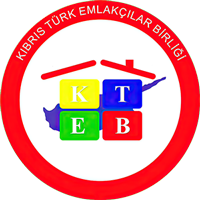Buyers Guide

Under the new laws of the Turkish Republic of Northern Cyprus (TRNC) non-TRNC Citizens are entitled to hold a title deed to only one property up to a maximum area of 5 donums per household providing that the property only consists of one dwelling (previously this was 1 donum, but this has now been increased by the Immovable Property Acquisition and Long Term Lease (Aliens) Law 52-2008).
Building permission will not be granted to build further dwellings after permission to purchase has been granted. For the purposes of this law, husband and wife count as one household. Before the title deeds to the property can be registered in your name, you will need to have permission from the TRNC Council of Ministers. This is explained in more detail below. If you wish to take title to more than 1 property, or a property over 5 donums in size, we can give you advice on using our Trust Company or setting up a TRNC company to hold the title for the property.
The first step will be an initial meeting with your solicitor to obtain information about the property you have chosen and any informal agreements you have made with the vendor regarding price, payment schedule and included items. This stage may also involve taking a power of attorney from you to ensure that your solicitor can act on your behalf in your absence.
Your solicitor will then prepare a Contract of Sale to safeguard your interests. The Contract of Sale will include all important terms such as plot number, plot size, price, payment schedule, completion date with penalty clauses for late completion and all floor plans and specifications will be attached to the contract to ensure that the vendor is bound to carry out the construction work in accordance with these. The contract will be sent to both the vendor and the purchaser for review. When both parties are happy the contract will be signed.
New regulations dated 2nd January 2008 require all Contracts of Sale for the purchase of immovable property in North Cyprus to be registered at the District Land Registry within 21 days of being signed. It is now compulsory for the stamp duty to be paid at the rate of 0.5% before registration can take place. Once the Contract of Sale is registered the purchaser is protected against the land being sold, or mortgaged to a third party.
The District Land Registry fee for the registration is charged at the rate of 44.50 TL for one Title Deed and an additional 13.50 TL for each additional Title Deed. It may be that your site has several Title Deeds. To register the contracts, the District Land Registry requires the original and a photocopy of the Contract of Sale, the site and seating plans, a copy of the Title Deed, a copy of the Stamp Duty receipt and copies of identification for the parties or where the vendor is a company, the company documents together with an application form in duplicate and the appropriate fee.
Acre
1 acre = 4 evlek = 14,400 square foot = 1,338 m²
Evlek
1 Evlek = 3600 square foot = 334,5 m²
Square foot
1 square foot = 30,48 cm
m²
1 m = 10,76 square foot
You can carry out the registration yourself at the Land Registry or you can instruct your solicitor to do this for you for which they will charge you an additional fee. If anyone other than yourself carries out the registration you will have to give a Power of Attorney authorising them to act on your behalf.
Furthermore, in December 2007, the Electricity Board introduced a new regulation under which purchasers can no longer apply for an electricity meter to be connected to their property unless they can prove that the Stamp Duty on their Contract of Sale has been paid.
Your solicitor will then make the application to the Council of Ministers for your permission to purchase. Whilst processing your purchase permit application, the Council of Ministers will take searches from the land registry, the military and the immigration authorities and provided that these are positive, the permission will be granted. The permission process can take a long time to complete; the current estimation is around two years. However, this will not prevent you from moving into the property or leasing the property or possibly even selling the property.
Once your purchase permission has been granted, your solicitor will notify you and then fill out all of the necessary land registry valuation forms for the valuation of the property. The taxes due on transfer of title will be paid and the title deeds will be registered in your name. All of this can be dealt with without you being required to travel to the TRNC. Your solicitor will then collect and keep the title deeds for you until you are ready to collect them.
Guide to Taxes for Property Transactions.
THERE ARE FOUR MAIN TAXES INVOLVED IN ANY PROPERTY SALE AND PURCHASE TRANSACTION:
- The Transfer Fee which is payable to the District Land Registry.
- The Capital Gains Tax which is payable to the Tax Office.
- The VAT (KDV) which is payable to the Tax Office or to the Vendor.
- The Stamp Duty which is payable to the Tax Office.
Different taxes apply to gifts of property for no consideration and transfers of property between family members. As a general rule, Capital Gains Tax is payable by the Vendor and the Transfer Fee and Stamp Duty are payable by the Purchaser. This can also be varied by the parties by an express clause in the Contract of Sale.
THE PAYMENT OF VAT DEPENDS ON TWO FACTORS:
Depending on wether the Vendor is deemed by the Tax Office to be a Professional. If the Vendor is deemed to be a Professional Vendor, the transaction will be subject to VAT.
If the Vendor is a private individual, the transaction will not be subject to VAT.
Transfer Fee was generally paid as a percentage of the Assessed Value of the property which is calculated by the Land Registry just before transfer of title takes place. The Land Registry assesses the property in the state it is in at the date of the assessment (i.e. if there is a new construction on the property), this will be included in the assessment of the value of the property.
However, under new regulations, the Land Registry requires sight of the Contract of Sale before transfer of title and will calculate the Transfer Fee on the higher of either the Assessed Value or the Contract price. The VAT and Capital Gains again used to all be based on the Assessed Value of the property. However, under new regulations, the Tax Office now requires a copy of the Contract of Sale to be presented to it prior to transfer of title. It will then calculate the VAT and Capital Gains Tax based on either the Assessed Value or the Contract value, whichever is the highest.
Stamp Duty is calculated on the contract price.
TRANSFER FEE
The Transfer Fee is 6%. On most property purchases, there is also a small local municipality tax which is 1% of the Transfer Fee amount.
VAT FOR PROPERTY TRANSACTIONS
5%. Please note that some Vendors require the VAT to be paid on the date that possession of the property is delivered to the Purchaser. You should check the terms of your Contract of Sale or the Vendor’s standard terms of sale on this point.
CAPITAL GAINS TAX
As stated above, this is usually paid by the Vendor. The amount payable depends on whether the Vendor is a Professional Vendor or a private individual as defined under the section on VAT above. If the Vendor is a Professional Vendor, the rate will be 6.25%. Otherwise, the rate will be 3.5%.
STAMP DUTY
This is 0.5% of the Contract price provided this is paid within one month of the date of the Contract.
